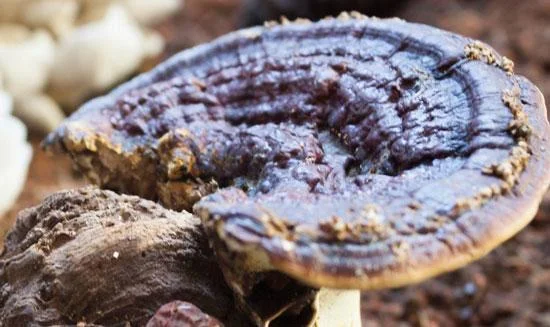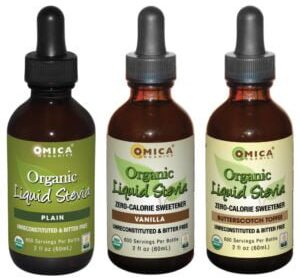Mushrooms are a type of fungus that have been valued for their culinary and medicinal properties for centuries. While most people are familiar with the familiar cap and stem of the mushroom, the actual organism is much more complex. In fact, there are two distinct parts of the mushroom that are commonly used in supplements and extracts: the mycelial mass and the fruiting body. Understanding the differences between these two parts is essential for understanding the nutritional and therapeutic benefits of mushroom supplements.
What’s The Difference Between Mycelium and Fruiting Body?
The mycelium is the vegetative part of the mushroom that grows underground. It is made up of a network of fine, branching threads called hyphae. The mycelium is responsible for absorbing nutrients from the surrounding soil and converting them into usable compounds for the mushroom.
In contrast, the fruiting body is the part of the mushroom that is visible above ground. It is made up of a cap, stem, and gills (or pores, in the case of some mushrooms). The fruiting body is the reproductive part of the mushroom and is responsible for producing spores that can be dispersed to create new mushrooms.
Nutritional Differences
While both the mycelial mass and the fruiting body contain beneficial compounds, they have different nutritional profiles. Mycelial mass tends to be higher in carbohydrates and lower in protein compared to the fruiting body. This is because the mycelium is primarily focused on breaking down organic matter in the soil and absorbing nutrients, while the fruiting body is focused on reproduction.
On the other hand, the fruiting body tends to be higher in protein, fiber, and certain minerals, such as potassium and phosphorus. Additionally, the fruiting body contains certain polysaccharides, like beta-glucans, that have been linked to immune system support and other health benefits. Overall, the fruiting body has more nutrition than the mycelial mass. So pay attention next time you buy a mushroom blend or supplement.
Therapeutic Differences
The therapeutic benefits of mushrooms are largely attributed to their polysaccharides, which have been shown to have immune-modulating and anti-inflammatory properties. However, there are differences in the types of polysaccharides found in the mycelial mass and the fruiting body.
The mycelial mass tends to contain polysaccharides that are more simple in structure, such as alpha-glucans, which have been shown to have antioxidant and anti-inflammatory properties. On the other hand, the fruiting body tends to contain more complex polysaccharides, such as beta-glucans, which have been shown to have a stronger immune-modulating effect.
It is worth noting that the type and amount of polysaccharides can vary depending on the specific species of mushroom and the growing conditions. For example, certain mushrooms, like reishi and shiitake, are known to have higher levels of beta-glucans in their fruiting bodies, while others, like Cordyceps, are known for their mycelial mass.
Once again, overall, the fruiting body has more therapeutic value as well as nutritional value.
Which Should You Choose? Fruiting Body or Mycelial Mass?
When it comes to choosing a mushroom supplement, the decision between mycelial mass and fruiting body can be a difficult one. In general, it is best to look for products that use both parts of the mushroom, as each can offer unique benefits.
Additionally, it is important to choose high-quality supplements that have been rigorously tested for purity and potency. Look for products that have been certified by third-party organizations, such as the United States Pharmacopeia (USP) or the NSF International, which ensure that the product contains the advertised ingredients in the stated amounts.
The majority of the time, nine times out of ten the fruiting body is going to have more nutritional and therapeutic value.
Long story short, you want to get the fruiting body of the mushroom, organic. This is going to give you a lot more nutritional and therapeutic value as a whole.
I have found Neuroeffect from Paleoyvalley to be an incredible mushroom blend specifically formulated for the brain, but also benefiting the immune system, nervous system and many other aspects that mushrooms benefit the body with. I have noticed that my brain on NeuroEffect is clearer, works better and is more dialed in.
For a limited time they are offering 15% off your first bottle. Click here to try NeuroEffect today at 15% off!
Unfortunately most mushroom powders, blends and supplements on the market today are primarily mycelial mass. Why? The mycelial mass is cheaper, so if they can create a cheaper product and still claim “Reishi mushroom” or whatever mushroom it may be, they make more money. There is one product however that is a blend of 8 medicinal mushrooms, organic, and it contains all of them in the fruiting body form. Your brain FEELS it too.
NeuroEffect Contains 8 Medicinal Mushrooms
Take a look at these 8 ingredients and their incredible medicinal potential! Every ingredient in their formula is the fruiting body, and not the mycelial mass.
Lion’s mane (Hericium erinaceus) is a type of mushroom that has been used in traditional Chinese medicine for centuries to treat a variety of health conditions. In recent years, there has been a growing interest in the health benefits of lion’s mane, with several studies investigating its potential therapeutic effects. Here are some key findings from the research on lion’s mane:
- Brain Health: Lion’s mane has been shown to have neuroprotective effects, meaning it may help protect the brain from damage and age-related cognitive decline. In a study published in the Journal of Agricultural and Food Chemistry, researchers found that lion’s mane extract was able to promote the growth and differentiation of nerve cells in the brain, which could potentially improve cognitive function. Another study published in the Journal of Medicinal Food found that lion’s mane supplementation improved cognitive function in elderly individuals with mild cognitive impairment.
- Immune System Support: Lion’s mane has been shown to have immunomodulatory effects, meaning it can help regulate the immune system and support immune function. In a study published in the International Journal of Medicinal Mushrooms, researchers found that lion’s mane extract was able to stimulate the production of immune cells in the body. Additionally, another study published in the Journal of Ethnopharmacology found that lion’s mane extract was able to enhance the immune response in mice infected with a bacterial pathogen.
- Digestive Health: Lion’s mane may also have benefits for digestive health. In a study published in the Journal of Agricultural and Food Chemistry, researchers found that lion’s mane extract was able to protect against inflammation and oxidative stress in the intestines of rats. Additionally, another study published in the International Journal of Medicinal Mushrooms found that lion’s mane extract was able to improve symptoms in individuals with ulcerative colitis, a chronic inflammatory condition of the colon.
Anti-Cancer Properties: Lion’s mane may also have anti-cancer properties. In a study published in the Journal of Agricultural and Food Chemistry, researchers found that lion’s mane extract was able to inhibit the growth of several types of cancer cells in vitro. Additionally, another study published in the International Journal of Medicinal Mushrooms found that lion’s mane extract was able to reduce the growth of colon cancer cells in mice.
Click here to get NeuroEffect today, an organic fruiting body blend including Lion’s mane and 7 other mushrooms! Enjoy it for 15% off while supplies last!
NeuroEffect also contains…
Cordyceps Mushroom:
Improving Exercise Performance: Cordyceps mushroom has been found to enhance oxygen utilization in the body, which may improve exercise performance. In a study published in the Journal of Alternative and Complementary Medicine, researchers found that cordyceps supplementation improved aerobic capacity in healthy older adults.
Anti-Inflammatory Properties: Cordyceps may have anti-inflammatory effects, which could make it beneficial for conditions like asthma, arthritis, and other inflammatory conditions. In a study published in the International Journal of Biological Macromolecules, researchers found that cordyceps extract was able to reduce inflammation in mice with lung inflammation.
Boosting Immune Function: Cordyceps may also support immune function. In a study published in the Journal of Medicinal Food, researchers found that cordyceps supplementation increased the number of natural killer cells, which play a role in immune defense.
Reishi Mushroom:
Reducing Inflammation: Reishi mushroom has been found to have anti-inflammatory effects, which could make it beneficial for conditions like arthritis, allergies, and other inflammatory conditions. In a study published in the Journal of Ethnopharmacology, researchers found that reishi extract was able to reduce inflammation in rats with arthritis.
Supporting Immune Function: Reishi may also support immune function. In a study published in the Journal of Medicinal Food, researchers found that reishi supplementation increased the production of immune cells in the body.
Anti-Cancer Properties: Reishi mushroom may also have anti-cancer properties. In a study published in the Journal of Medicinal Food, researchers found that reishi extract was able to reduce the growth of breast cancer cells in vitro.
Chaga Mushroom:
Anti-Inflammatory Properties: Chaga mushroom has been found to have anti-inflammatory effects, which could make it beneficial for conditions like arthritis, allergies, and other inflammatory conditions. In a study published in the International Journal of Medicinal Mushrooms, researchers found that chaga extract was able to reduce inflammation in mice with colitis.
Supporting Immune Function: Chaga may also support immune function. In a study published in the International Journal of Medicinal Mushrooms, researchers found that chaga supplementation increased the production of immune cells in the body.
Anti-Cancer Properties: Chaga mushroom may also have anti-cancer properties. In a study published in the Journal of Ethnopharmacology, researchers found that chaga extract was able to reduce the growth of colon cancer cells in vitro.
Turkey Tail Mushroom:
Immune System Support: Turkey tail mushroom has been found to support immune function. In a study published in the International Journal of Medicinal Mushrooms, researchers found that turkey tail supplementation increased the number of natural killer cells in the body.
Anti-Cancer Properties: Turkey tail mushroom may also have anti-cancer properties. In a study published in the International Journal of Oncology, researchers found that turkey tail extract was able to induce cell death in breast cancer cells.
Gut Health: Turkey tail may also have benefits for gut health. In a study published in the Journal of Agricultural and Food Chemistry, researchers found that turkey tail extract was able to stimulate the growth of beneficial bacteria in the gut.
Shiitake Mushroom:
Supporting Immune Function: Shiitake mushroom has been found to support immune function. In a study published in the Journal of Medicinal Food, researchers found that shiitake supplementation increased the production of immune cells in the body.
Anti-Cancer Properties: Shiitake mushroom may also have anti-cancer properties. In a study published in the Journal of Agricultural and Food Chemistry, researchers found that shiitake extract was able to induce cell death in colon
Tremella Mushroom:
Skin Health: Tremella mushroom has been traditionally used in Chinese medicine to improve skin health. Tremella contains natural sugars that are thought to have moisturizing and anti-aging effects on the skin. In a study published in the Journal of Medicinal Food, researchers found that tremella extract was able to improve skin hydration and elasticity in healthy adults.
- Immune System Support: Tremella mushroom may also support immune function. In a study published in the Journal of Medicinal Food, researchers found that tremella supplementation increased the production of immune cells in the body.
- Antioxidant Properties: Tremella mushroom has antioxidant properties, which may help protect the body against oxidative stress. In a study published in the Journal of Agricultural and Food Chemistry, researchers found that tremella extract was able to scavenge free radicals in vitro.
Maitake Mushroom:
- Immune System Support: Maitake mushroom has been found to support immune function. In a study published in the Journal of Medicinal Food, researchers found that maitake supplementation increased the production of immune cells in the body.
- Blood Sugar Control: Maitake mushroom may have benefits for blood sugar control. In a study published in the Journal of Medicinal Food, researchers found that maitake extract was able to reduce blood sugar levels in mice with type 2 diabetes.
- Anti-Cancer Properties: Maitake mushroom may also have anti-cancer properties. In a study published in the Journal of Agricultural and Food Chemistry, researchers found that maitake extract was able to reduce the growth of bladder cancer cells in vitro. Additionally, in a study published in the Journal of Cancer Research and Therapeutics, researchers found that maitake extract was able to improve the effectiveness of chemotherapy in mice with liver cancer.
Click Here to get NeuroEffect for 15% off and get all 8 of these medicinal mushrooms in your body, improving your brain health, reducing inflammation, improving the health of your nervous system, strengthening immunity and so much more!





